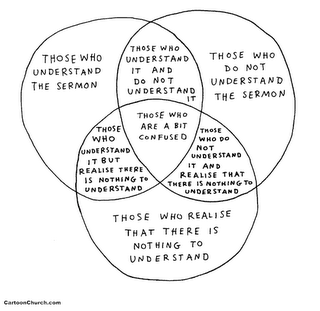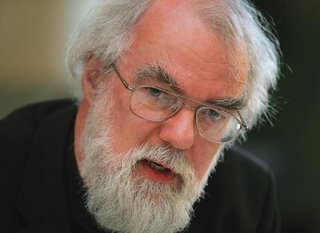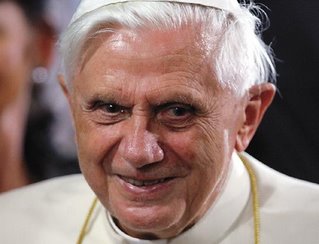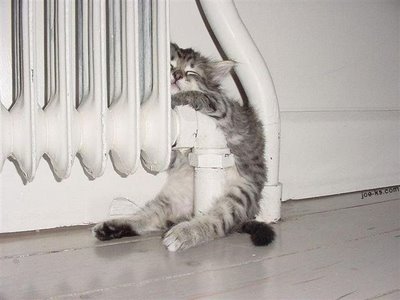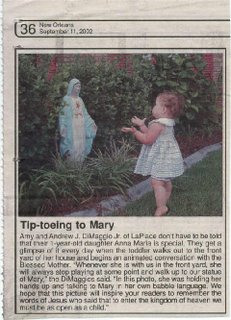
The following letter originated from The Consultation Steering Committee, a network which includes representatives from the following organizations in The Episcopal Church: Integrity, Episcopal Urban Caucus, Episcopal Peace Fellowship, Episcopal Women's Caucus, Union of Black Episcopalians, Episcopal Ecological Network, National Episcopal AIDS Coalition, Province VIII Indigenous Ministries, Episcopal Church Publishing Company, Episcopal Network for Economic Justice, Episcopal Asiamerica Ministry Advocates, and Associated Parishes for Liturgy and Mission.
To add your signature please email your name, title and organization to Marge Christie at mrg713@optonline.net
--------------------------------------------------------------------------------
An open letter to the Archbishop of CanterburyRegarding requests for “alternative primatial oversight”
Dear Archbishop Williams:
We write as members of The Episcopal Church to express our deep concern about the requests for “alternative primatial oversight” that have come from eight of our dioceses since the 2006 General Convention. Such a request is unprecedented, and we believe that granting any of these requests would pose a grave danger to the Anglican Communion.
An important aspect of our Anglican identity is our comprehensiveness as a reformed and catholic church in which our unity is expressed in common prayer rather than adherence to a formal confession of faith other than the Creeds. Historically, Anglicans have been willing to live together with a wide spectrum of theological perspectives. As you remind us in your June 2006 statement “The Challenge and Hope of Being an Anglican Today,” our distinctive Anglican inheritance includes “a reformed commitment to the absolute priority of the Bible for deciding doctrine, a catholic loyalty to the sacraments and the threefold ministry of bishops, priests and deacons, and a habit of cultural sensitivity and intellectual flexibility that does not seek to close down unexpected questions too quickly.” Drawing on these three components together, we are rooted in Christ, and our focus in Christ enables us to live with diverse and even at times conflicting points of view. Archbishop Njongonkulu Ndungane has recently commented: “It is because Jesus Christ, second person of the Trinity made flesh, is our goal, our end, our telos, the central focus and direction of our lives, that Anglicanism has found through the ages that we can afford to live with messiness, ambiguity and anomaly at the edges.”
Those seeking “alternative primatial oversight” are in effect asking to walk away from the messiness and ambiguity of our current disputes about gays and lesbians in the church. In so doing, they give to these questions a doctrinal weight not in keeping with historic Anglican understandings. Allowing dioceses to reject the oversight of the duly selected primate of The Episcopal Church because of disagreements about this matter would open the door for others, here and elsewhere in the Anglican Communion, to reject pastoral and sacramental leadership on the basis of non-essential matters. This would lead to fragmentation of the Anglican Communion rather than deeper unity in Christ.
Some of those requesting “alternative primatial oversight” have also claimed that The Episcopal Church has not responded adequately to the Windsor Report. However, we do not view the Windsor Report as an ultimatum dictating precise forms of response by The Episcopal Church. We remind you of Archbishop Eames’ statement in the Foreword to the Report that it is not a judgment but part of a process. We understand participation in this process to include serious study of the report and prayerful consideration of its recommendations to The Episcopal Church. We believe that The Episcopal Church did so in its preparation for and actions at the General Convention, and committed by resolution to continue to do so, even as the process continues worldwide.
As with a response to any other recommendation or resolution from one of the Instruments of Communion or other international Anglican body, our response to the Windsor Report was made in light of our understanding of Scripture, the polity of The Episcopal Church, and sensitivity to the cultural contexts of this Church. We affirmed our desire to remain in the Anglican Communion, gave our support to the process of development of an Anglican Covenant, and committed ourselves to participate in the ongoing Windsor process as well as the listening process commended by the 1978, 1988, and 1998 Lambeth Conferences and the Windsor Report. We expressed regret for straining the bonds of affection in the confirmation and consecration of Gene Robinson as Bishop of New Hampshire, and we urged standing committees and bishops with jurisdiction to refrain from consenting to “the consecration of any candidate to the episcopate whose manner of life presents a challenge to the wider church and will lead to further strains on communion.” The House of Bishops had already developed a plan for delegating episcopal pastoral oversight, and the Convention approved this plan. Although the convention did not adopt any resolutions about blessing same-sex relationships, no such liturgy has been authorized by any convention; instead, any decision to permit celebration of such a liturgy remains with the bishop, consistent with the provisions of the 1979 Book of Common Prayer. In sum, we believe that the General Convention of The Episcopal Church has responded with great care to the Windsor Report, and at significant cost to some members of this Church. We urge you to reject claims that The Episcopal Church has not responded adequately to the Windsor Report, particularly as those claims become the basis for division rather than reconciliation. It is now time to allow others in the Anglican Communion, including the Instruments of Communion, to respond.
At least one of the dioceses requesting “alternative primatial oversight” has suggested the formation of a tenth province of The Episcopal Church. Creation of such a province could only occur through a canonical change enacted by the General Convention, and it is doubtful that the convention would approve the creation of a non-geographic province that is based on theological conviction. Beginning in the earliest centuries of the Church, dioceses have been formed geographically, and non-geographic dioceses and other structures have been considered anomalous. For example, during the nineteenth century, the overlapping American, English, and Canadian Anglican jurisdictions in Japan and China posed significant obstacles to missionary endeavors. More recently, the efforts of Anglicans representing the Diocese in Europe (Church of England), the Convocation of American Churches in Europe, the Lusitanian Church, and the Reformed Episcopal Church of Spain have shown us the benefits made possible by coordinated efforts. Allowing dioceses of The Episcopal Church to be overseen by primates from other regions would introduce the complexities and challenges of overlapping jurisdictions that historically have presented obstacles to effective mission.
Permitting “alternative primatial oversight” would be further complicated by the reality that within each of the dioceses requesting this oversight, there are individuals and congregations who would understand themselves to remain fully within The Episcopal Church under the oversight of our Presiding Bishop. We anticipate that legal challenges would ensue, requiring significant expenditures of time and money that would be better spent on other essential matters of mission.
Finally, we feel compelled to question the premise of “alternative primatial oversight.” There is no provision in the Constitution and Canons of The Episcopal Church for the Archbishop of Canterbury to exercise jurisdiction in this Province. In the Episcopal Church, the General Convention has sole authority to amend the Constitution and Canons, including the formation of dioceses and the assignment of dioceses to provinces within the Episcopal Church. We recognize that the Primates’ Meeting at Dromantine in February 2005 recommended that you appoint a panel of reference “to supervise the adequacy of pastoral provisions” made for dioceses in dispute with their provincial authorities. We remind you that in the Communiqué from that same meeting (par. 10) the Primates expressed caution regarding “any development which would seem to imply the creation of an international jurisdiction which could override our proper provincial autonomy.” Thus we urge that any work of the panel of reference respect the authority of the Presiding Bishop and the autonomy of The Episcopal Church.
We appreciate your support for the conversations convened in New York City in September 2006 among several bishops of The Episcopal Church, including the Presiding Bishop and the Presiding Bishop-elect, with Kenneth Kearon, Secretary General of the Anglican Communion. This is an important sign that leadership in the Anglican Communion recognizes that the Archbishop of Canterbury does not have jurisdiction over the internal life of The Episcopal Church. We believe that the discussions must widen to include other clergy and lay leaders, particularly the President of the House of Deputies of The Episcopal Church, since our polity calls for full participation of laity as well as clergy other than bishops in decisions affecting our common life. We ask that you encourage and support a process that includes representatives of the entire Episcopal Church in discussions and decisions about the requests for “alternative primatial oversight.”
We recognize, as you have pointed out in “The Challenge and Hope of Being an Anglican Today,” that there continue to be strains in relationships within The Episcopal Church as well as between Churches of the Anglican Communion, and that we continue to be bound together through many different informal networks as well as more formal relationships such as companion dioceses. It is our fervent prayer that we continue to grow more deeply into the unity and the truth that are Christ’s gift. We believe that granting requests for “alternative primatial oversight” would undermine our ability to receive these gifts of truth and unity, and we urge you not to authorize any such plan.
xc: The Most Reverend Katharine Jefferts Schori, Presiding Bishop and Primate
Ms. Bonnie Anderson, President of the House of Deputies of the General Convention
The Rev. Dr. W. Robert Abstein, interim rector, St. Ann 's Episcopal Church, Nashville
Dianne Aid, Franciscan Tertiary; Episcopal Church Ethnic Ministries and Peace and Justice Networks
The Rev. Stephen G. Alexander, retired, Diocese of Lexington
The Rev. Canon Dr. Norman Alexandre, Diocese of Oklahoma , Ret.
Calvilyn Y. Allmon, senior warden, Church of the Holy Comforter, Monteagle , TN
The Rev. Dr. David A. Ames, interim rector, St. Mark's Church, Riverside , RI
Dr. Owanah Anderson, retired, vestry member, All Saints Episcopal Church, Diocese of Fort Worth
The Rev. Mark S. Anschutz, former rector, Saint Michael and All Angels Church, Dallas
Peggy Anschutz, Saint Mary's Church, Barnstable , MA
Br. Anthony-Francis, solitary in the Diocese of New York
Patricia L. Bailey, Holy Trinity Episcopal Church , Greensboro , NC
Ann Fields Baker, president, The Oasis Mo., a diocesan-related institution in the Diocese of Missouri
The Rev. M. Clark Baker, retired, Diocese of Tennessee
Terri Jo Barron, Holy Comforter, Diocese of Florida
The Rt. Rev. Allen Bartlett, bishop of Pennsylvania (Ret.), Diocese of Pennsylvania
William H. Bartosh, lay-vicar, St Matt's, San Ardo , CA (Diocese of El Camino Real)
Dianne C. Betts, Ph.D., Dallas , TX
The Rev. Mary Margaret Blanchard, Diocese of East Tennessee
William R. Boling, Jacksonville , FL
Bruce O. Boston, St. Anne's Episcopal Church, Reston , VA
Donna Bott, moderator, Episcopal Voices of Central Florida
Susan J. Boulden, diocesan coordinator, Integrity/Pittsburgh
The Rt. Rev. David C. Bowman, IX Bishop of Western New York , retired; assisting bishop of Ohio
The Rev. Canon Malcolm Boyd
The Rev. Lyn G. Brakeman, priest associate, St. John 's Episcopal Church, Gloucester , MA
Fr Richard S. Brooks, retired, Concordia, KS
The Very Rev. Dr. Donald G. Brown, Trinity Cathedral, Sacramento , CA (retired)
Dr. Harold H. "Brownie" Brown, St. Patrick's Episcopal Church, Diocese of Maine
The Rev. Daniel Burke, retired priest, canonically resident in the Diocese of Rhode Island
Thomas E. Camp, communicant of ECUSA; member, Otey Memorial Parish, Sewanee , TN
The Rev. Peter Carey, assisting priest, Church of the Holy Apostles, New York City
John G. Carroll, St. Mark's Episcopal Church, St. Louis , MO
The Rev. R. William Carroll, Ph.D., rector, The Episcopal Church of the Good Shepherd, Athens, OH
The Rev. Phillip C. Cato, Ph.D., Potomac , MD
Richard A. Cavender, Christ Church Episcopal, Rolla , MO
Gretchen R. Chateau, Emmanuel Episcopal Church, Orlando , FL ; member, Episcopal Voices of Central Florida
The Rev. Dr. Ken Clark, retired canon theologian and sometimes dean, St. John's Cathedral, Albuquerque , NM
Barbi Click, vice president South Central Region Integrity USA ; membership chair of Fort Worth Via Media
The Ernest W. Cockrell, rector, Saint Andrew's Church, Saratoga , CA
Kathleen Connor, Calvary Church , Diocese of Pittsburgh
Nancy Gailor Cortner, Cathedral Church , St. John the Divine, New York
The Rev. Barbara C. Crafton, Metuchen , NJ
Louie Crew, Ph.D., D.D., D.H.L., chair, Newark Deputation of General Convention; secretary, Joint Standing Committee on Nominations of the GC
The Rev. William E. Crews, priest, Episcopal Church, retired
Kathryn J. Davidson-Bond, president, Dame Julian Chapter, Daughters of the King; LEM/LEV, St. Richard's Episcopal Church, Winter Park , FL
Lionel E. Deimel, Ph.D., board member and past president, Progressive Episcopalians of Pittsburgh; member, Via Media USA Alliance
The Rev. Elizabeth Morris Downie, St. Christopher's Episcopal Church, Grand Blanc , MI
The Rev. Dr. Thomas A. Downs, rector, St. Richard's Episcopal Church, Winter Park , FL
The Rev. William E. Exner, National Executive Committee of Episcopal Peace Fellowship
The Rev. Robin Flocken, rector, St. Peter's Episcopal Church, Cazenovia , NY
The Rev. David K. Fly, Diocese of Missouri ; president, The Episcopal Majority
Kathleen Flynn, secretary, St Luke's Episcopal Church, Mulberry, FL
The Rev. Ann Fontaine, Diocese of Wyoming
Lisa L. Fox, Grace Episcopal Church, Jefferson City, MO; steering committee of The Episcopal Majority
Hansheinrich A. Franzen, Poughquag , NY
Linda Getts, treasurer, Progressive Episcopalians of Pittsburgh
The Rev. Dr. Cynthia A. Gilliatt, non-stipendiary, Diocese of Virginia
Joe T. Gilliland, Asheville , NC
Elizabeth K. Gordon, minister of communion, Christ & Holy Trinity Church , Westport , CT
Marjorie F. Greene, Tallahassee , FL ; St. Johns Episcopal Church
Andrew Grimmke, Diocese of Atlanta
Gordon W. Gritter, lay deputy to General Convention, Diocese of El Camino Real
Joan R. Gundersen, Ph.D., Diocese of Pittsburgh
The Rev. Tobias Stanislas Haller BSG, vicar, Saint James Fordham, Bronx , NY
The Rev. W. Richard Hamlin, Ph.D., rector, St. Michael's, Lansing , MI ; standing committee member, Diocese of Michigan
Joanna Hynes Haas, LEM/LEV, Episcopal Church of the Holy Apostles, Satellite Beach , FL
Tom Hardin, parishioner, St. Ann 's Episcopal Church, Nashville , TN
Patricia Hatfield, Grace Episcopal Church and Episcopal Voice of Central Florida
The Rev. Michael W. Hopkins, rector, The Church of St. Luke & St. Simon Cyrene, Rochester, NY
Ardelle D. Hopson, parishioner, Calvary Episcopal Church, Pittsburgh, PA; member, Diocesan Council and Growth Fund (Board of Trustees), Diocese of Pittsburgh
The Rev. Canon David C. James, rector, St. John's Episcopal Church and Diocesan Mission Center, Olympia, WA
The Rev. Dr. David L. Jeffery, priest-in-charge, St Luke's Episcopal Church, Jacksonville , FL
The Rev. Pegram Johnson III, Ph.D., retired, Diocese of Washington
Janis L. Jones, former lay deputy alternate to General Conventions, Diocese of Los Angeles
Thomas H. Justice III, past senior warden, capital campaign committee chairman, LEM, Emmanuel Episcopal Church, Orlando, FL; Diocese of Central Florida
The Rev. Elizabeth Kaeton, president, The Episcopal Women's Caucus
Carole Sue King, LEV, St. Philip's Episcopal Church, New Hope , PA
The Rev. John L. Kirkley, rector, The Episcopal Church of St. John the Evangelist, San Francisco
Daniel W. Land, lay deputy to General convention, Diocese of Wyoming
The Rev. Joseph A. Lane, rector, Good Shepherd Episcopal Church, Belmont, CA; steering committee member, Claiming the Blessing
Nancy Lapp, board member, Progressive Episcopalians of Pittsburgh
John V. Larson, sr. warden, St. John the Evangelist, Lockport IL ; member, Diocesan Council, Diocese of Chicago
The Rev. Dr. Katherine M. Lehman, rector, St Bede's, Menlo Park, CA; representative, Consultation from Associated Parishes for Liturgy and Mission
William H. Lorentz, NJ Dep. Atty. Gen. (Ret.); St. George's Episcopal Church, Maplewood , NJ
Nancy Lowry, Diocese of Western Massachusetts
Martha Maddox, member, St. John's Episcopal Church
Knute E. Malmborg, vestry member, St. Matthew's Episcopal Church, St. Petersburg, FL
Mary D. Malmborg, treasurer, St. Matthew's Episcopal Church, St. Petersburg , FL
Susan Mangam STR, solitary religious, Episcopal Diocese of Maine
Judy Wright Mathews, Diocese of Florida , Holy Comforter Episcopal Church; steering committee member, The Episcopal Majority
The Rev. Charles Scott May, All Saints Church, Atlanta , GA , Diocese of Atlanta
Dennis A. McAndrew, Progressive Episcopalians of Pittsburgh
The Rev. Eleanor L. McLaughlin, Ph.D., rector, St. Barnabas Episcopal Church, Berlin , NH
The Rt. Rev. Charlie F. McNutt, VIII Bishop of Central Pennsylvania , Retired
Ruth A. Meyers, academic dean and professor of liturgics, Seabury-Western Theological Seminary
Mary H. Miller, coordinator, The Consultation
The Rev. Ronald H. Miller, Ph. D., editor, ISSUES 2006, Diocese of Maryland (retired); part-time interim, Church of St. Katherine of Alexandria , Baltimore
The Rev. Michael B. Milligan, rector, Episcopal Church of the Resurrection, Diocese of Utah
The Rev. Charles H. Morris, D. Min., assisting priest, Episcopal Church of the Transfiguration, Lake Saint Louis , MO
Philip G. E. Nicholson, Poughquag , NY
The Rev. Dr. C. Patrick Ormos, deputy, 2006 General Convention; rector, St. Andrew's Episcopal Church, Valparaiso, IN; regional dean, Michigan City Deanery, Diocese of Northern Indiana
La wren ce Peter, Jr., Episcopal Voices of Central Florida
Marguerite W. Peter, Episcopal Voices of Central Florida
The Rev. Kathryn A. Piccard, Boston , MA
Charlotte Pierce, St. Brendan's Episcopal Church, Diocese of Pittsburgh
Robert Pierce, St. Brendan's Episcopal Church, Diocese of Pittsburgh
Diane Pollard, The Consultation, Episcopal Urban Caucus
Leslie Poole, Diocese of Central Florida
The Rev. Daniel Prechtel, D. Min., chaplain, Seabury-Western Theological Seminary; senior. associate, Lamb & Lion Spiritual Guidance Ministries, Evanston , IL
Dr. Charlotte Pressler, Holy Trinity Episcopal Church , Bartow , FL
Alice Ramser, Progressive Episcopalians of Pittsburgh
Ann Ray, layperson, The Episcopal Church
Nigel A. Renton, lay deputy, Diocese of California
Mendy Richards, St. Michael's, Cookeville , Diocese of Tennessee
The Rev. Reynold H. Richaud, Trinity Episcopal Church , Clarksville , TN
The Rev. Nancy Roth, author, retreat leader, assisting priest, Christ Church , Oberlin , OH
The Rev. Susan Russell, president, Integrity USA
The Rev. Jason W. Samuel, standing committee member, Diocese of Missouri; The Oasis Missouri; The Episcopal Church of the Transfiguration, Lake Saint Louis, MO
Anthony P. Saponate (Tony), lay-vicar, St Matt's, San Ardo , CA (Diocese of El Camino Real)
Robert Christian Senay, vestry member/organist, St. Thomas Episcopal Church, Canonsburg, PA; editor of PEP Talk, Progressive Episcopalians of Pittsburgh
Katie Sherrod, Fort Worth , TX ; Claiming the Blessing
The Rev. Richard J. Simeone, rector, St. John's Episcopal Church, Gloucester , MA
The Rev. Robert R. Smith, rector, Church of the Holy Communion, Norwood , NJ
The Rev. Walter Evans Smith, LMFT, FAGPA, priest, Diocese of Atlanta
The Rev. Diane J. Souder, priest, canonical residence in Arizona
The Rev. Anne G. Stanley, rector, Christ Church Episcopal, Norway , ME
William A. Stevens, director of the altar guild, Calvary Episcopal Church, Pittsburgh , PA
Kenneth Stiles, Calvary Episcopal Church, Diocese of Pittsburgh
Duane St. John, parishioner, St. Andrew's By-the-Sea Episcopal Church, Destin , FL
Nancy St. John, parishioner, St. Andrew's By-the-Sea Episcopal Church, Destin , FL
The Rev. James V. Stockton, rector, The Episcopal Church of the Resurrection, Austin , Texas
The Rev. George Gaines Swanson, priest, Diocese of Newark
The Rev. John D. Talbird, Jr., (Ret.) Diocese of East Tennessee
Richard N. Taliaferro, Jr., theologian-in-residence, Trinity Episcopal Church , Arlington , VA
The Rev. Cabell Tennis, Delaware IX
The Rev. Canon Richard F. Tombaugh, Diocese of Connecticut
Mr. Peter Tringham, Fort Worth Via Media
Mrs. Peter Tringham, Fort Worth Via Media
Clydie Walker, St. Christopher's Episcopal Church, Diocese of Fort Worth ( Texas )
Sarah Walker, St. Christopher's Episcopal Church, Diocese of Fort Worth ( Texas )
The Rev. Stephen J. Waller, rector, St. Thomas the Apostle, Dallas , TX
The Rev. Ann Walling, assistant to the rector, St. David's Episcopal Church, Nashville , TN
W. E. Weems II, St. Ann 's Episcopal Church, Diocese of Tennessee
The Rt. Rev. O'Kelley Whitaker, Diocese of Central New York (resigned)
Christopher I. Wilkins, Ph.D., facilitator, Via Media USA
Pierce Lee Williams, III, Episcopal Voices of Central Florida and Christ the King Episcopal Church, Orlando
 From the Album “Zero Church”
From the Album “Zero Church”


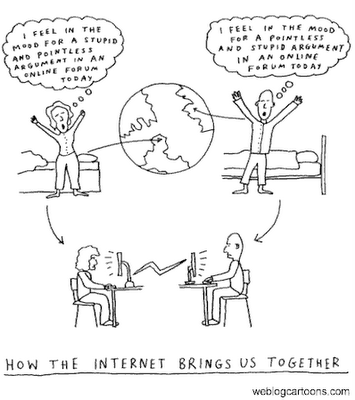





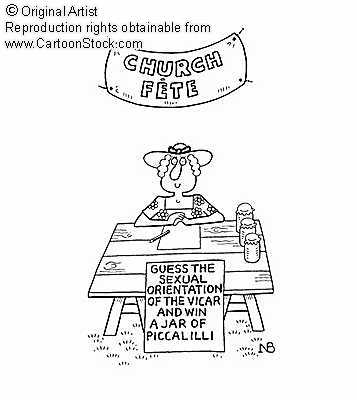
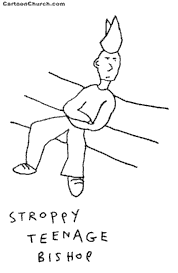
 The Living Church
The Living Church 